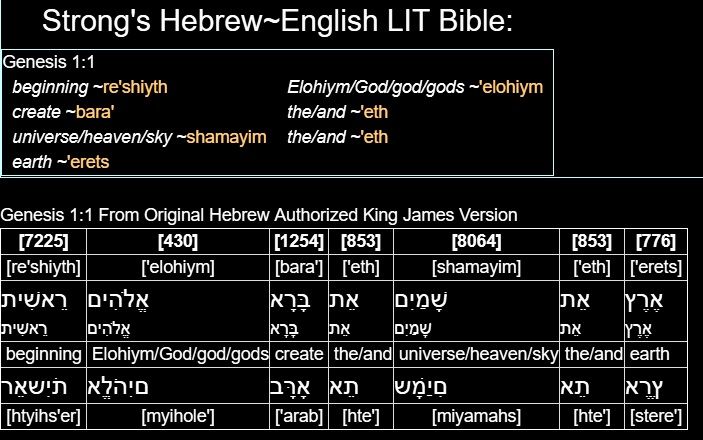| [2228] | [5101] | [444] | [2076] | [1537] | [5216] | [3739] | [1437] | [846] | [5207] | [154] | [740] | [1929] | [3361] | [846] | [3037] |
|---|---|---|---|---|---|---|---|---|---|---|---|---|---|---|---|
| [e] | [tis] | [anthropos] | [esti] | [ek] | [humon] | [hos] | [ean] | [autos] | [huios] | [aiteo] | [artos] | [epididomi] | [me] | [autos] | [lithos] |
| ἤ | τίς | ἄνθρωπος | ἐστί | ἐκ | ὑμῶν | ὅς | ἐάν | αὐτός | υἱός | αἰτέω | ἄρτος | ἐπιδίδωμι | μή | αὐτός | λίθος |
| and, but (either), (n-)either, except .. | every man, how (much), + no(-ne, -thin.. | human/people | are, be(-long), call, X can(-not), com.. | after, among, X are, at, betwixt(-yond.. | ye, you, your (own, -selves | one, (an-, the) other, some, that, wha.. | before, but, except, (and) if, (if) so.. | her, it(-self), one, the other, (mine).. | child, foal, son | ask, beg, call for, crave, desire, req.. | shew-)bread, loaf | deliver unto, give, let (+ (her drive).. | any but (that), X forbear, + God forbi.. | her, it(-self), one, the other, (mine).. | mill-, stumbling-)stone |
| ἤ | ςίτ | ςοπωρθνἄ | ίτσἐ | κἐ | νῶμὑ | ςὅ | νάἐ | ςότὐα | ςόἱυ | ωέτἰα | ςοτρἄ | ιμωδίδιπἐ | ήμ | ςότὐα | ςοθίλ |
| [e] | [sit] | [soporhtna] | [itse] | [ke] | [nomuh] | [soh] | [nae] | [sotua] | [soiuh] | [oetia] | [sotra] | [imodidipe] | [em] | [sotua] | [sohtil] |
Matthew7:9 From Original Authorized King James VersionMatthew 7:9 Or what man is there of you, whom if his son ask bread, will he give him a stone?
Matthew 7:9 Or what man is there of you, whom if his son ask bread, will he give him a stone?
Matthew7:9 Strong's Greek~English LIT Bible:
Matthew 7:9
and, but (either), (n-)either, except .. ~e
every man, how (much), + no(-ne, -thin.. ~tis
human/people ~anthropos
are, be(-long), call, X can(-not), com.. ~esti
after, among, X are, at, betwixt(-yond.. ~ek
ye, you, your (own, -selves ~humon
one, (an-, the) other, some, that, wha.. ~hos
before, but, except, (and) if, (if) so.. ~ean
her, it(-self), one, the other, (mine).. ~autos
child, foal, son ~huios
ask, beg, call for, crave, desire, req.. ~aiteo
shew-)bread, loaf ~artos
deliver unto, give, let (+ (her drive).. ~epididomi
any but (that), X forbear, + God forbi.. ~me
her, it(-self), one, the other, (mine).. ~autos
mill-, stumbling-)stone ~lithos
Samekhi's Greek LTR-RTL Greek Hebrew Bible Project
Matthew 7:9
Strong's Dictionary Number: [2228] |
Strong's Dictionary Number: [5101] |
Strong's Dictionary Number: [444] |
Strong's Dictionary Number: [2076] |
Strong's Dictionary Number: [1537] |
Strong's Dictionary Number: [5216] |
Strong's Dictionary Number: [3739] |
Strong's Dictionary Number: [1437] |
Strong's Dictionary Number: [846] |
Strong's Dictionary Number: [5207] |
Strong's Dictionary Number: [154] |
Strong's Dictionary Number: [740] |
Strong's Dictionary Number: [1929] |
Strong's Dictionary Number: [3361] |
Strong's Dictionary Number: [846] |
Strong's Dictionary Number: [3037] |
Verses -> 1 2 3 4 5 6 7 8 9 10 11 12 13 14 15 16 17 18 19 20 21 22 23 24 25 26 27 28 29
The King James version of the Bible is Public Domain.


🌈Pride🌈 goeth before Destruction

When 🌈Pride🌈 cometh, then cometh Shame
Bible News
- The Greek Word Pharma in Revelation 18:23, Does it Refer to Big Pharma? - Thu, 07 Apr 2022 13:09:12
- If you are a country club church working out of a country club building who wants to have a Country Club Church Website... - Sat, 26 Feb 2022 20:45:41
- Gematria of the Egyptian Hieroglyphs - Fri, 25 Feb 2022 16:26:48
- Oldest Manuscript P47 shows Σ Sigma not Ξ Samekh for 60 in the 666 from Revelation 13:18 - Sun, 20 Feb 2022 09:30:56
- What does biblical “inerrancy” mean? | Richard Ostling - Patheos - Sun, 20 Feb 2022 09:29:08
- DC museum unveils rare 1,000-year-old Hebrew Bible - The Times of Israel - Fri, 18 Feb 2022 22:54:59
- Ancient Canaanite temple with statues of Baal found in southern Israel - Haaretz - Fri, 18 Feb 2022 22:53:28
- Inside the Lachish Temple, the Earliest Example of the Letter Samekh - The Daily Beast - Fri, 18 Feb 2022 22:44:02
- Israeli scholars discover corrections, erasures, revisions in oldest biblical manuscript - Haaretz - Fri, 18 Feb 2022 22:42:27
- Museum of the Bible returns hand-written gospels looted from Greece during the First World War - Art Newspaper - Fri, 18 Feb 2022 22:41:24
- Bible study: Ancient Jewish manuscript analysed using state-of-the-art cameras - Daily Mail - Fri, 18 Feb 2022 22:39:25
- Is a Long-Dismissed Forgery Actually the Oldest Known Biblical Manuscript? - The New York Times - Fri, 18 Feb 2022 22:32:39
- More Dead Sea Scrolls, second oldest Hebrew Bible manuscript, found after 60 years - ThePrint - Fri, 18 Feb 2022 22:30:23
- A Biblical Mystery and Reporting Odyssey: 1883 Fragments - The New York Times - Fri, 18 Feb 2022 22:24:46
- Lost Bible Fragment Recovered Among Dead Sea Scrolls | Lost Bible Fragment Recovered Among Dead Sea Scrolls - Patheos - Fri, 18 Feb 2022 22:14:35
- African Script Sheds Light on Evolution of Writing - DISCOVER Magazine - Fri, 18 Feb 2022 21:47:13
- Evidence of ‘biblical giants’ found in northern Israel - The Jerusalem Post - Fri, 18 Feb 2022 21:39:06
- Oldest precursor to letter S aka Samekhi was found in nine-letter Canaanite text unearthed in Israel - Fri, 18 Feb 2022 21:39:06
- In Tigray, Christianity May Be Erased - FSSPX.Actualités - FSSPX.News - Fri, 18 Feb 2022 14:12:41
- Rocket Science Confirms Biblical Creation - Answers In Genesis - Fri, 18 Feb 2022 13:28:44
.jpg)
Christian how we Support the Ministry
Industrial Electronic Repair
Industrial Monitor Repair
Power Supply Repair
ebay
Manufacture's Repaired
A B C D E F G H I J K L
M N O P Q R S T U V W X Y Z
Simple Rules for this Site!
Posted by Webmaster on Saturday, August 31 2002
- Web-Ministry is intended for the Glory of God.
- Please try to be respectful of God and to be reverent toward His Word, which is the Holy Bible.
- Some may not be Christian nor agree with Christian theology in general, but please be respectful of those that do and to Christendom in general.
- People from all walks of life and backgrounds of faith are welcome here, including the backslidden and nonbelievers, as well.
- We may not all agree... but we can agree to disagree, at least.
- However, any potential disagreements still need to remain civil in nature, and should stay as such.
- Please, just debate the points of your position, if necessary, and refrain from ad hominem attacks. Slandering and name calling serve no productive purpose.
- Posting rules are based upon decent conduct and generally acceptable chat behavior and, also, on Christian beliefs and morals found in the Holy Bible.
- Please refrain from using offensive language or obscenely suggestive innuendo.
- Usernames that are not becoming of basic common decency and morality are not to be used and may possibly result in membership cancellation.
- Refusing to follow forum rules may result in membership cancellation and possibly some or all applicable posts being deleted and if necessary... entire threads.
- If you feel these things to be unacceptable, please find another forum to post on.Thank you.
- dp,webmaster,Chrysoprasus,wilshine
Jesus Christ Forums
To the Glory of Jesus Christ!
Jesus Christ Forums Software Testing
Radio for Jesus 24/7
Hosted by $SamekhiAmI

Surplus by Samekhi
OR
Cash app $SamekhiAmI
Manufacture's Repaired
A B C D E F G H I J K L
M N O P Q R S T U V W X Y Z
Web-Ministry Created this page in 0.120846 seconds